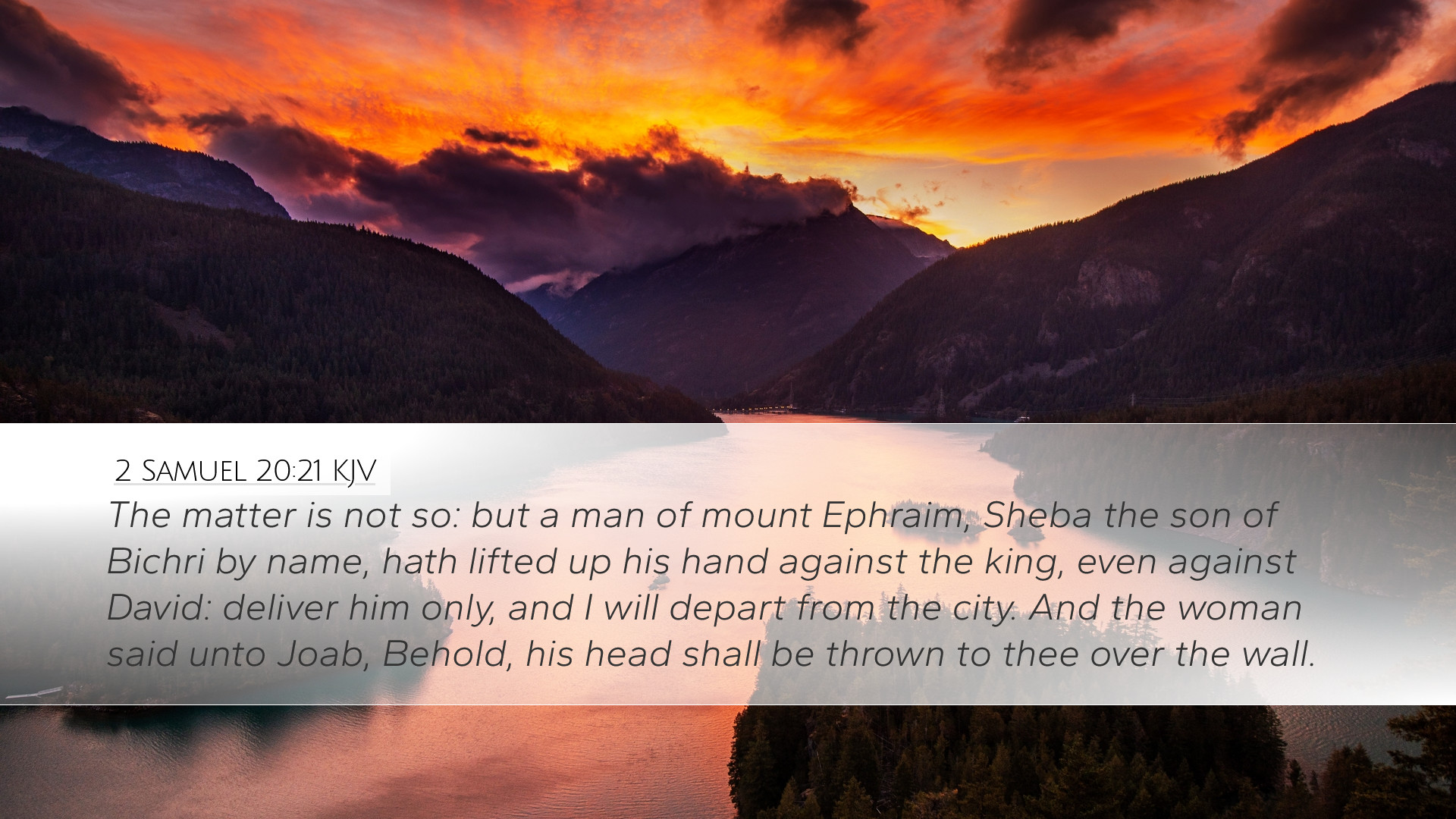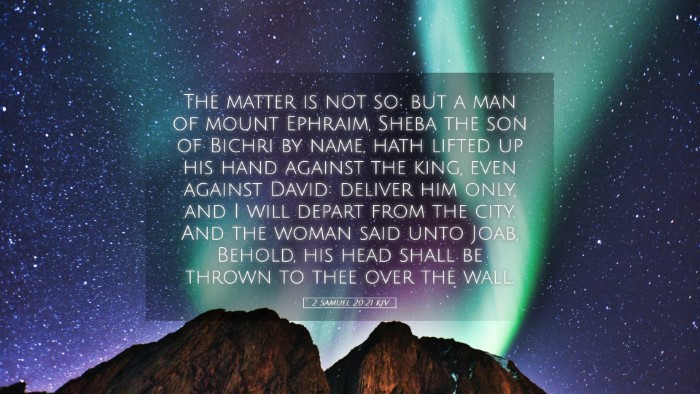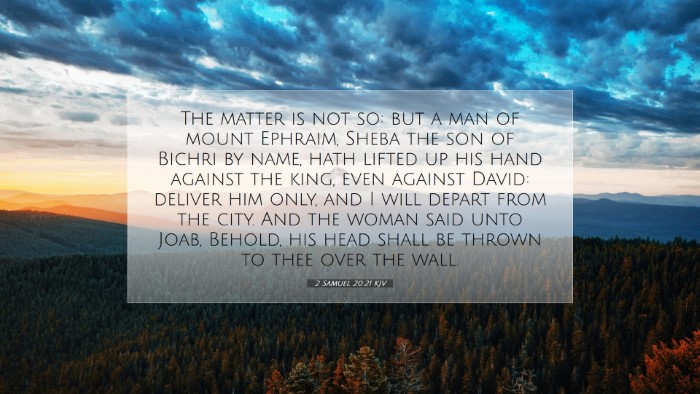Commentary on 2 Samuel 20:21
2 Samuel 20:21 states, "But a man of mount Ephraim, Sheba the son of Bichri, hath lifted up his hand against the king, even against David: deliver me only, and I will depart from the city." This verse occurs in a narrative reflecting the political turmoil during King David's reign. The verse highlights the insurrection led by Sheba, the son of Bichri, a significant figure who contrasts sharply with David's authority.
Contextual Background
This incident takes place after the internal conflict and rebellion stirred by Absalom's uprising. David's victory over Absalom reestablishes his kingship, yet tensions remain high as not all factions of Israel return peacefully to David's rule. Sheba’s rebellion signifies the division among the tribes, particularly between the northern tribes of Israel and Judah.
Commentary Insights
-
Matthew Henry's Commentary
Matthew Henry emphasizes the political and social implications of Sheba's rebellion. He notes that Sheba is described as a man of mount Ephraim, which identifies him as a representative of the northern tribes dissatisfied with Judah's control. Henry observes that the rebellion underscores a struggle for power and acknowledgement among the tribes of Israel, illustrating the complexities of ancient Hebrew politics.
-
Albert Barnes' Commentary
Albert Barnes delves into the significance of the phrase "lifted up his hand against the king." This expression indicates a direct challenge to the authority of David, who was revered as God’s anointed. Barnes posits that this rebellion not only jeopardized David’s reign but also demonstrated the fragile unity among the tribes. He highlights that the actions of Sheba are reflective of both pride and discontent that could lead to further instability in the kingdom.
-
Adam Clarke's Commentary
Adam Clarke provides an extended analysis of the character of Sheba. He suggests that Sheba is emblematic of rebellion against divinely appointed authority, illustrating the dangers that come from disregarding God's chosen leaders. Clarke remarks that Sheba's actions serve as a reminder of the constant threat of discord that existed in Israel, as opposing factions sought control and influence.
Theological Reflections
This verse, while a historical account, bears significant theological weight. It prompts us to reflect on the nature of leadership and rebellion in both ancient times and in contemporary settings. The narrative serves as a reminder that true leadership involves not only authority but also responsibility towards those being led. In light of New Testament theology, it provokes questions about loyalty to Christ, the ultimate King, and how modern believers respond to conflicts of authority.
Applications for Today's Ministry
For pastors and theological students, this verse invites exploration into themes of unity and division within the church. Sheba's insurrection can serve as a case study in the dangers of factions forming within congregations, reminding leaders to pursue unity under Christ, who calls us to be one body.
- Consider pastoral care in reconciling conflicts among church members.
- Emphasize the importance of collective loyalty to Christ rather than personal ambitions or tribal identities within the church.
- Encourage the body of Christ to be vigilant against factions that may arise from misunderstanding, jealousy, or ambition.
Conclusion
In 2 Samuel 20:21, the narrative surrounding Sheba's rebellion provides rich insight into the dynamics of leadership, authority, and community. Both historic and contemporary applications emerge from this verse, challenging readers to contemplate their roles within the community of believers and urging them to maintain unity under the lordship of Christ. As we reflect on this passage, may we seek to support and uphold one another in faith, striving for harmony that glorifies God.


